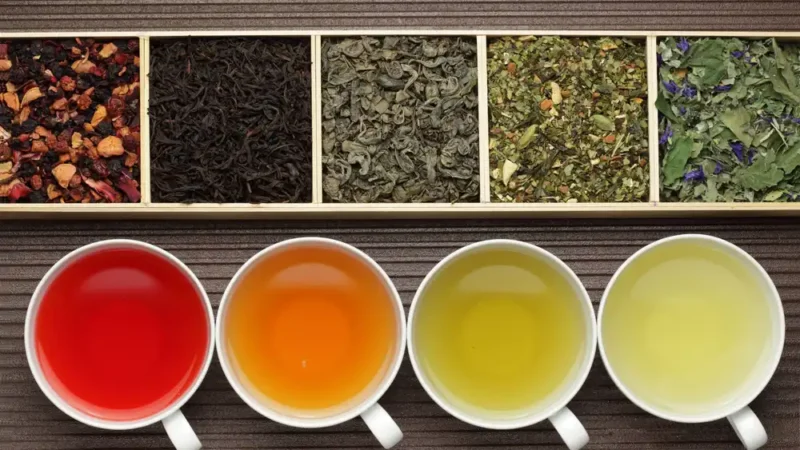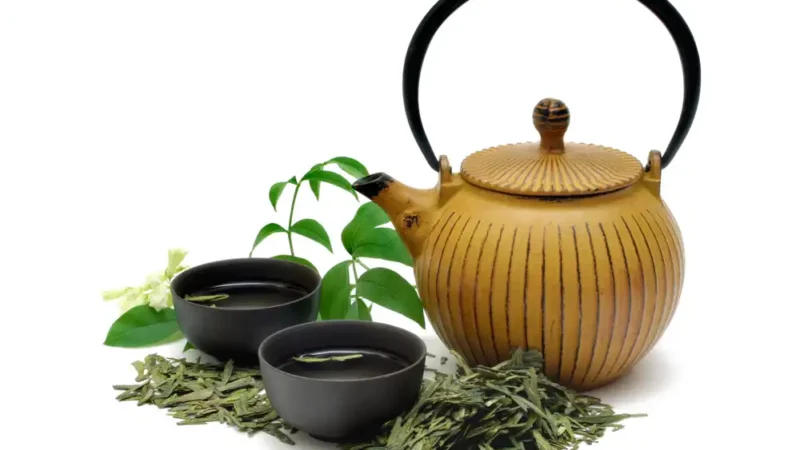Genmaicha, The Nutty Delight of Japanese Green Tea

Introduction
Tea lovers worldwide are constantly exploring diverse blends and flavors to enhance their tea experience. One such intriguing variety is Genmaicha, a traditional Japanese green tea mixed with roasted brown rice. Known for its unique flavor profile and historical significance, Genmaicha offers a delightful and accessible entry point into the world of Japanese teas.
What is Genmaicha?
Genmaicha (玄米茶), translated as “brown rice tea,” is a harmonious blend of green tea leaves and roasted brown rice. Typically, the green tea component is either bancha or sencha, which are popular types of Japanese green tea. The addition of roasted rice imparts a distinct nutty flavor, setting it apart from other green teas.
This tea is cherished for its comforting and unique taste, resulting from the fusion of the grassy notes of green tea and the toasty, nutty aroma of roasted rice. Genmaicha is often referred to as “popcorn tea” because some of the rice grains pop during the roasting process, resembling popcorn. This gives the tea an extra layer of visual appeal and a slight popcorn-like flavor that many find delightful.
Flavor Profile
The combination of green tea leaves and roasted rice creates a balanced and mild flavor that is both intriguing and comforting. The grassy, fresh notes of the green tea are complemented by the nutty, slightly sweet taste of the roasted rice, resulting in a flavor that is complex yet harmonious. The roasted rice introduces a toasty, caramel-like undertone that enhances the overall taste experience.
Some of the rice may pop during the roasting process, resembling popcorn, which adds an extra layer of flavor and visual appeal. This unique flavor profile makes Genmaicha less astringent than pure green tea, providing a smoother and more enjoyable drinking experience. The interplay of the savory and sweet notes in Genmaicha makes it a versatile tea that can be enjoyed both on its own and with a variety of foods, making it a popular choice for many tea enthusiasts.
Health Benefits
Like other green teas, Genmaicha is rich in antioxidants, vitamins, and minerals, offering numerous health benefits. Here are some of the health benefits associated with this tea:

Rich in Antioxidants: Genmaicha contains catechins, a type of antioxidant that helps protect cells from damage and supports overall health. These antioxidants can help reduce the risk of chronic diseases, improve heart health, and enhance the body’s natural defense mechanisms.
Aids Digestion: The roasted brown rice can aid in digestion, making Genmaicha a great after-meal beverage. The tea can help soothe the digestive tract, reduce bloating, and promote a feeling of comfort after eating. This makes it an excellent choice for those who experience digestive issues or simply want to enjoy a calming tea after meals.
Calming Effects: The lower caffeine content in Genmaicha, compared to other green teas, makes it a soothing option that can help reduce stress and promote relaxation. The amino acid L-theanine present in green tea works synergistically with the moderate caffeine content to induce a state of calm alertness, making Genmaicha a perfect beverage for unwinding without feeling drowsy.
Weight Management: The combination of green tea and brown rice can support metabolism and aid in weight management. Green tea has been shown to boost metabolic rate and increase fat oxidation, which can aid in weight loss efforts. The presence of dietary fiber in brown rice can also help promote satiety and reduce overall calorie intake.
Cultural Significance
Genmaicha has a rich history and cultural significance in Japan. Historically, it was known as “the people’s tea” because the addition of rice made the tea more affordable for the common folk. This blend allowed more people to enjoy the benefits and flavors of green tea, which was otherwise considered a luxury.
In ancient times, rice was a staple food in Japan, and adding it to green tea helped stretch the tea supply, making it more economical. This practice made Genmaicha popular among the working class and those who could not afford pure green tea. Over time, the unique flavor and health benefits of Genmaicha gained recognition, and it became a beloved tea enjoyed by people from all walks of life.
Genmaicha is also associated with the simplicity and humility of Japanese culture. It is often served in traditional Japanese tea ceremonies and is appreciated for its unpretentious yet satisfying taste. The tea’s history and cultural roots add to its charm, making it a symbol of resourcefulness and ingenuity.
How to Prepare Genmaicha
To fully appreciate the unique flavors of Genmaicha, proper preparation is essential. Here’s a step-by-step guide:
Water Temperature: Use water that is around 80°C (176°F). Boiling water can make the tea taste bitter, so it’s crucial to let the water cool slightly after boiling. The ideal temperature helps preserve the delicate flavors of the green tea while allowing the roasted rice to impart its nutty aroma.
Tea Quantity: Use about one teaspoon of Genmaicha per cup (200 ml) of water. This amount can be adjusted based on personal preference and the desired strength of the tea. Experimenting with the tea-to-water ratio can help you find the perfect balance that suits your taste.
Steeping Time: Steep the tea for 2-3 minutes. Over-steeping can lead to a bitter taste, so it’s best to stick to this time frame. The relatively short steeping time allows the flavors to develop without becoming overpowering. For a more robust flavor, you can increase the steeping time slightly, but be cautious not to overdo it.
Serving: Strain the tea leaves and rice, then pour the tea into your cup. Enjoy it hot to fully appreciate its nutty, warm flavors. Genmaicha can also be enjoyed cold, especially during warmer months. Simply prepare the tea as usual and let it cool before adding ice for a refreshing iced tea experience.
Conclusion
Genmaicha is a delightful blend that brings together the best of green tea and roasted brown rice. Its unique flavor profile, historical significance, and health benefits make it a favorite among tea enthusiasts. Whether you’re a seasoned tea drinker or a curious newcomer, Genmaicha offers a refreshing and soothing tea experience that is both accessible and enjoyable.






